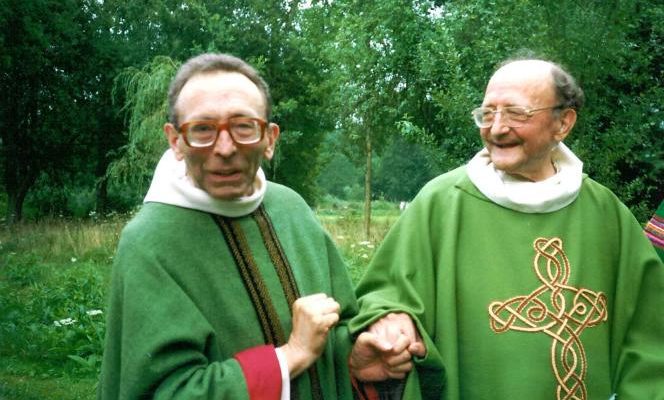When he resides in Paris, the bishop of Le Havre, Jean-Luc Brunin, arranges to meet at the Saint-Sulpice seminary, on the left bank of the Seine. The monk receives in the visiting room, a cold and bare room where only a crucifix underlines the sacredness of the place. Asked about the sex scandals within the Catholic Church, the prelate struggles to hide his nervousness. From time to time, we catch him clenching his fists as if to contain intense anger. Long a priest in the working world, committed to migrants, the 72-year-old clergyman refused, at the end of 2012, to participate in the Manif pour tous organized against homosexual marriage. He did not want to support a movement that was far from unanimous among Christians.
Since the summer of 2021, this rough dignitary has been leading the Emprise et déviances sectaires cell in the Catholic Church, created six years earlier in order to offer a confidential listening space to victims of abuse, then to launch the alert in the dioceses involved. His team is currently managing 52 files, and the bishop confirms that several of them are related to the Philippe brothers, ” the sad stars of the moment », he sighs. The past of these Dominicans, Thomas (1905-1993) and Marie-Dominique Philippe (1912-2006), brothers in blood and religion, deeply indignant him. “For decades, these priests released their sexual urges by invoking a truncated spirituality, he summarizes. Both died, but their toxicity spread through a large network of followers. This is very serious. »
The Philippe case is out of the ordinary, indeed. At the end of January, two damning investigations – one on the initiative of L’Arche internationale, an association for the disabled with a presence throughout the world, and the other commissioned by the order of the Dominicans – analyzed over the course of hundreds of pages the actions of the duo. These works are historic, even if the excesses were partly known thanks to the courageous words of several victims long vilified by the fervent defenders of the accused.
The silence of Rome
Rome could have stopped this crazy mechanism seventy years ago. But at the At the end of the 1950s, the Vatican preferred to conceal the nature of the canonical sanctions pronounced against the two brothers for sexual and spiritual abuse. Thomas, the eldest, was no longer authorized to deliver the sacraments or to preach, the final sentence before dismissal from the clerical state. The powers of confession and direction of the faithful were withdrawn from Marie-Dominique, who was also forbidden to stay in the convents. Protected by the guilty silence of the Holy Office, the Dominicans managed to continue their misdeeds despite these judgments.
You have 88.3% of this article left to read. The following is for subscribers only.
